


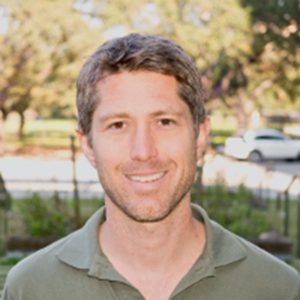
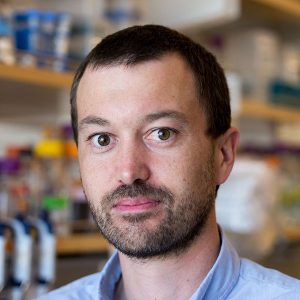
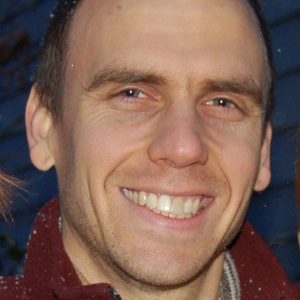
Michael Smanski is currently an Assistant Professor of Biochemistry, Molecular Biology, and Biophysics in the Biotechnology Institute at the University of Minnesota. He received his BS in Biochemistry from the University of California, San Diego and a PhD in Microbiology from the University of Wisconsin under the mentorship of Ben Shen. As an HHMI Postdoctoral Fellow of the Damon Runyon Cancer Research Foundation, he worked with Christopher Voigt in the Department of Biological Engineering at the Massachusetts Institute of Technology. He joined the faculty of the University of Minnesota in 2014. Throughout his career, Michael has studied and engineered multi-gene systems in bacteria. His group at UMN has developed a new platform for engineering ‘species-like’ barriers to sexual reproduction, and they are currently exploring applications for transgene biocontainment and the control of pest populations. Michael has been a member of EBRC since 2018 and has served on the EBRC Council from 2019-present.

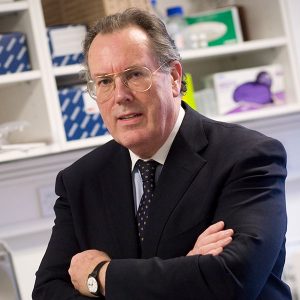
Kitney is Professor of Biomedical Systems Engineering at Imperial College London and Co-Director of the UK’s National Industrial Translation Centre for Synthetic Biology/Engineering Biology (SynbiCITE). Kitney is a Fellow of The Royal Academy of Engineering (the UK’s National Academy of Engineering) and Chaired the Academy’s Inquiry into Synthetic Biology. He a member of the UK’s Ministerial Leadership Council for Engineering Biology. Kitney (with Professor Paul Freemont) has been responsible for founding and developing the Imperial College Engineering/Biology Hub. Kitney has considerable business experience, particularly in relation to start-ups and SMEs. For example, he was Co-founder and Chairman of Visbion Ltd (until December 2022) – a medical imaging and biomedical information systems company, with over 1000 installations in 10 countries. In 2022 Kitney Co-founded SynBioVen (SBV), a venture fund focussing on investment in UK Start-ups and SMEs in engineering biology. He is a Director of SBV. Kitney has published over 300 papers in the fields of engineering biology, mathematical modelling, biomedical information systems, and medical imaging and has worked extensively in and with industry. He was an author of both the UK Government’s Roadmaps for Synthetic Biology. Kitney is an Academician of the International Academy of Biomedical Engineering and is also a Fellow of AIMBE (the America Academy of Biomedical Engineering). In 2006 he was made an Honorary Fellow of both The Royal College of Physicians and The Royal College of Surgeons. In 2016 he was made a Fellow of The Royal Society of Edinburgh.
In June 2001, Kitney was awarded The Order of the British Empire (OBE) in the Queen’s Birthday Honours List for services to Information Technology in Healthcare.




Rick Johnson focuses on integrating policy and law with science, engineering, Big Data, and biomedicine to drive research and innovation and to enable problem-oriented solutions to global challenges. His current interests include: (1) synthetic biology, the engineering of biology, and the industrialization of biology; (2) the bioeconomy and next-generation production economy; (3) neuroscience and brain health, especially Alzheimer’s; and (4) policy issues for convergence, international S&T, and Big Data. Rick is the CEO and founder of Global Helix LLC, a thought leadership and innovative strategic positioning firm. After 30 years, Rick retired as Senior Partner at Arnold & Porter LLP in Washington, D.C., where he represented many of the leading research universities, foundations, and innovative multinational companies about enabling basic research, international collaborations, innovation strategies, and public-private partnerships through innovative approaches to law and policy. Johnson is a member of the Board on Life Sciences at the National Academy of Sciences (NAS) and the NAS Synthetic Biology Leadership Forum, and serves as Chairman of the NAS Bioeconomy initiative. He is a member of several other NAS initiatives: biomedical innovation and precision medicine; convergence and next-generation infrastructures; synthetic biology and the industrialization of biology; the BRAIN initiative; and the intersection of science and security issues. He also serves as the Chairman of the BIAC Technology & Innovation Committee at the OECD, and he recently was named one of the 14 global members of the new OECD Global Advisory Council for Science, Technology, and Innovation. In addition, Rick is the Chairman of Brown’s Biology & Medicine Council and is a member of the boards for EBRC, the Stanford BioFab and BioBricks Foundation, and the iGEM Foundation for global education. For many years, Rick served on the MIT Corporation Committee, and numerous university-industry boards. In addition to receiving his Juris Doctor degree from the Yale Law School where he was Editor of the Yale Law Journal, he received his M.S. from the Massachusetts Institute of Technology where he was a National Science Foundation National Fellow and MIT distinguished young scholar, and his undergraduate degree with highest honors from Brown University.

Kersh is a PhD student in the Chemical Biology program at UC Berkeley. His research aims to understand the cellular physiology of Methanococcus maripaludis, an archaeal platform for sustainable chemical synthesis using CO2 as a feedstock. As part of the SPA, Kersh has initiated the Mentorship program for the EBRC and continues to pair mentors and mentees, assess the quality of the program through quarterly feedback and organize events for mentors and mentees to meet.
Do Soon Kim is a PhD candidate in the Jewett Lab at Northwestern University. In his research, he works on designing variant ribosomes using experimental and computational methods. As an industry liaison in SPA, Do Soon is working on compiling and developing a resume book to better connect SPA members to EBRC industry members!
Weston Kightlinger (Board Member) is an NSF Graduate Research Fellow working towards his PhD in the lab of Michael Jewett at Northwestern University. In his research, Weston using cell-free protein synthesis and high-throughput mass spectrometry to engineer synthetic glycosylation systems for the production and design of improved protein therapeutics and vaccines. As part of SPA, Weston has helped organize retreat workshops on science communication and undergraduate mentorship.
Bon Ikwuagwu (Board Member & Education Liaison) is a PhD student in the Tullman-Ercek Lab at Northwestern University. He is working on understanding design rules for protein self assembly developing methods to engineer virus-like particles for applications in drug delivery. Bon serves as the education liaison for the SPA, working with the committee to improve the public’s understanding of synthetic biology.
Emily Hartman is a PhD student in the Francis and Tullman-Ercek groups at UC Berkeley. She studies self-assembling proteins using a systematic mutagenesis techniques. She is also the workshop liaison for SPA.
Jason is a PhD graduate from University of Washington. He is interested in CRISPR-based tools for turning on and off multiple genes in E. coli in a programmable manner. These tools could be useful for discovering and implementing complex transcriptional programs to improve bioproduction in bacteria
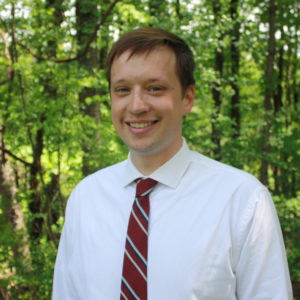
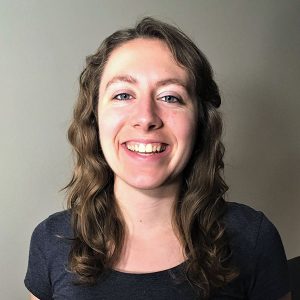
Kathryn Brink is a PhD student in the Tabor lab at Rice University. She is working to identify novel antimicrobials that inhibit virulence-associated two-component systems, signaling pathways that bacterial pathogens use to activate virulence genes upon entry into a host. As part of the SPA, Kathryn works with Kersh to manage the IAB-Student Mentoring program.
Cassandra Barrett is a PhD student in Karmella Haynes’ lab at Arizona State University. Her research focuses on building synthetic biology tools to manipulate the chromatin environment in mammalian cells in order to improve genome editing. As president of the EBRC SPA, Cassandra coordinates career development programming, organizes retreat events, and oversees the SPA board. Cassandra hopes to have a career integrating biotechnology with clinical genetics.